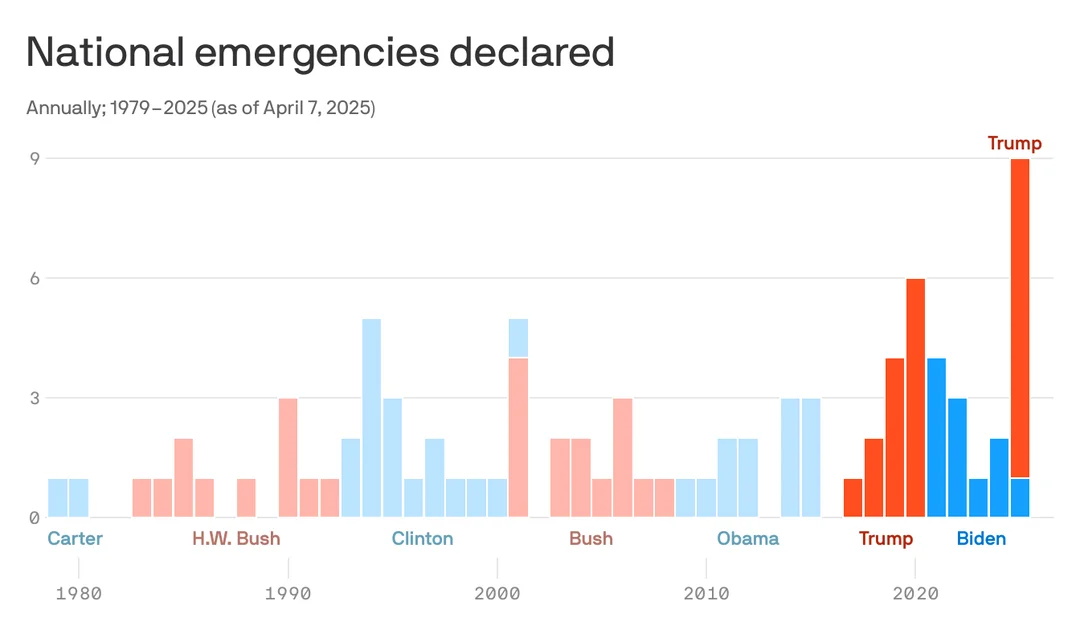
What Do Trump’s Emergency Declarations Mean for America’s Future?
In less than 100 days since his return to office, President Donald Trump has made headlines by declaring more national emergencies than any other leader in modern U.S. history. But what does this mean for the nation’s political landscape and the balance of power?
The importance of this development cannot be overstated. Trump's use of emergency powers has become integral to his governance strategy, allowing him to issue unilateral directives while sidestepping Congress. This shift in power raises significant questions about the future of American democracy.

Since taking office, Trump has invoked national emergencies to implement the highest tariffs in a century, expedite energy and mineral production, and militarize federal lands along the southern border. Legal experts express concern that Trump is using loosely defined statutes to tilt the constitutional balance of power in his favor.
Under the National Emergencies Act of 1976, the president can declare a state of emergency for almost any reason without needing to demonstrate a specific threat or seek approval from Congress. This law originally contained a mechanism for Congress to rein in such declarations, but the Supreme Court's 1983 ruling rendered that oversight effectively obsolete. As a result, presidents usually operate on norms of restraint to avoid misusing this power for non-crisis situations.
Elizabeth Goitein, a senior director at the Brennan Center for Justice, notes that norms have been upended in recent years. The precedent of using emergency declarations as a tool for governance was notably broken by Trump in 2019 when he declared a national emergency to bypass Congress and secure funding for a border wall. President Joe Biden has also drawn ire for exploiting a COVID-19 national emergency to erase student loan debt unilaterally.
Trump's ongoing approach appears to cement a path toward an expanded use of executive power. His administration has justified recent tariffs using the International Emergency Economic Powers Act (IEEPA), which permits such actions in the face of unusual threats to national security or the economy. The administration asserts that longstanding trade relationships represent such threats, a claim that pushes the boundaries of this law.
White House spokesman Harrison Fields emphasized that Trump is leveraging every constitutional tool to “Make America Great Again,” suggesting that the current challenges require a robust response. Meanwhile, the ACLU has raised alarms about Trump's potential deployment of the Insurrection Act of 1807, which would allow him to send National Guard troops into American cities without state consent.
As Trump navigates these uncharted legal waters, the implications for American democracy remain uncertain. With the increasing frequency of emergency declarations, the potential for a permanent state of crisis lingers. Could this redefine the role of the presidency in ways that transcend traditional governance?
The dialogue surrounding Trump’s emergency powers is ongoing, and as he asserts his authority, the public must grapple with pressing questions about accountability and the preservation of democratic norms. What are your thoughts on the implications of these actions?
Share your opinions in the comments below!